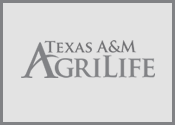
This item is adapted from an AgriLife submission to Texas Grain Sorghum Association’s “Sorghum Insider” Calvin Trostle, Ph.D., Professor & Extension Agronomist, TAMU Dept. of Soil & Crop Sciences, Lubbock, (806) 746-6101, ctrostle@ag.tamu.edu December 2023—Part IV (Part 5 in a future Row Crops Newsletter) Eight Soil Test Pointers for Texas Grain Sorghum: Part I: What is your soil test lab’s philosophy of nutrient provision? Part II: What does your soil test lab base fertilizer recommendations on? Part III: Do you use a soil test lab that is… Read More →